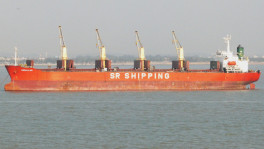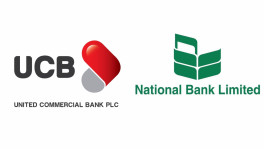The historical and economic significance of bilateral PTA with Bhutan
In a historic move, Bangladesh has signed its first ever bilateral PTA with the jewel of the Himalayas: The Kingdom of Bhutan on December 6, 2020

A Preferential Trade Agreement (PTA) is a trading agreement in relation to a certain geographical trading bloc that gives preferential access to certain goods from and within the participating countries. This is done by reducing tariffs but not by fully abolishing them, in contrast with a Free Tarde Agreement (FTA). PTAs are considered as the first milestone towards greater economic integration. PTAs are mostly multilateral, covering a number of participating countries, although it may also be bilateral to cover only two countries.
Such agreements allow businesses in each participating country to focus on utilising their domestic resources, labour and raw materials, to produce and manufacture appropriate goods, while requiring them to import goods for which the raw materials are domestically scarce or unavailable. This delicately poised blend of local production and foreign importation allow both the economies to experience faster economic development while at the same time meeting the needs of their consumers in a much better and efficient manner.
Economists contend that free trade expands the diversity and reduces the prices of commodities available in a country while better utilising its homegrown resources, knowledge and specialised skills. PTAs also act as a catalyst and as an institutional vehicle for fostering regional, multilateral and bilateral co-operations in developing infrastructure and addressing issues transcending the frontiers.
So far, Bangladesh has entered into few multilateral FTAs/PTAs with other developing and emerging economies. The two multilateral FTA deals include the South Asian Free Trade Area (SAFTA) Agreement and the Bay of Bengal Initiative for Multi-Sectoral Technical and Economic Cooperation (BIMSTEC) Agreement. On the other hand, the three multilateral PTAs are the Asia-Pacific Trade Agreement (APTA), the Trade Preferential Scheme among member states of the OIC (TPS-OIC) and the Developing-8 (D-8) PTA.
In a historic move, Bangladesh signed its first ever bilateral PTA with the jewel of the Himalayas: The Kingdom of Bhutan on December 6, 2020. Though Bhutan is a country that focuses more on GNH (Gross National Happiness) than GDP (Gross Domestic Product) and is not at all an economic giant, entering into the first bilateral PTA with Bhutan is a tribute to the historical relationship between the countries.
Bhutan is the first country in the world to recognise Bangladesh as an independent nation. On the December 6, 1971, 10 days even before the freedom fighters emerged victorious on December 16, 1971, Bhutan recognised Bangladesh. Signing the PTA on the same date also marked the glorious celebration of the 50th anniversary of diplomatic relations between the two countries.

Bangladesh and Bhutan have had low volume of bilateral trade, which persistently remained in favour of Bhutan. Nevertheless, the volume is gradually expanding, and it stood at $57.90 million in the fiscal year 2018-19, while it was only $26.52 million and $11.58 million in the FY 2012-13 and FY 2007-08 respectively.
Bangladesh mainly imports vegetables, minerals, chemicals, prepared foodstuffs, beverages, fruits, vinegar, tobacco, timber, wooden products and textile items from Bhutan. Bangladesh, on the other hand, mainly exports woven garment, computer accessories, dry food, frozen fish, plastic, furniture and pharmaceutical products.
Under the PTA, 100 Bangladeshi products, including 10 new goods, will enjoy duty-free access to the Bhutanese market. On the other hand, 34 Bhutanese items, including 16 fresh goods, will also enjoy duty-free access to the Bangladeshi market.
FTA deals are often difficult to strike since there are issues, including revenue losses, as all the listed products of both the countries under the FTAs enjoy duty-free facility. Moreover, many developed countries will not provide duty-free facility to Bangladesh after its graduation from LDC status in 2024. This is why focusing on evenly balanced PTAs is very essential.
It is encouraging to note that the government has planned to start negotiations with at least a dozen of countries, including the USA and Canada, for signing PTAs. Besides, necessary studies are almost completed in order to start dialogue for signing PTAs with Vietnam, Morocco and Japan.
Studies will also be initiated after necessary approval by the Ministry of Commerce for inking FTAs with three West-African countries: Sierra Leone, Senegal and Nigeria. A study on signing of PTA/FTA with some countries, including Eurasian and Association of Southeast Asian Nations (ASEAN) countries, has showed negative results. A products list has been finalised for signing PTA with Indonesia, which is now in a very mature stage.
It is hoped that the government shall continue to seriously emphasise on entering into more and more effective and well-balanced bilateral PTAs so that the producers can benefit from the greater market size created through the PTA, which can expand opportunities for exporting products, lead to more employment opportunities and further economic growth, and also at the same time giving the consumers better and more cost-effective options of goods. The PTA with Bhutan, despite being the first of its kind in almost 50 years of our independence, will surely lead the way for many more in the coming years.
Barrister Omar H Khan is an advocate of the Supreme Court of Bangladesh and is the Head of Chambers of a corporate law chambers. He can be reached at [email protected]
Disclaimer: The views and opinions expressed in this article are those of the author and do not necessarily reflect the opinions and views of The Business Standard.


 Keep updated, follow The Business Standard's Google news channel
Keep updated, follow The Business Standard's Google news channel
















